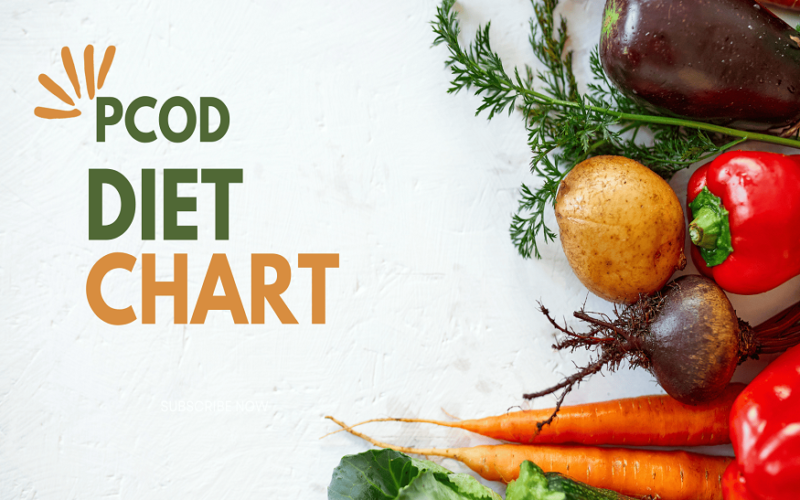Polycystic ovary disorder (PCOD) can be a challenging condition, impacting hormone balance, metabolism, and overall well-being. While there’s no magic cure, a well-designed PCOD diet chart can effectively help manage symptoms and support your overall health.
Here’s your comprehensive guide to the foods you should incorporate and avoid for better health with polycystic ovary disorder:
Foods to Eat
High-Fiber Foods:
PCOD often involves insulin resistance, making high-fiber foods essential for stabilizing blood sugar levels. Whole grains like brown rice, quinoa, whole wheat bread, and legumes such as lentils and beans should be staples in your PCOD diet chart. Fiber-rich vegetables like broccoli, cauliflower, and spinach provide additional benefits.
Lean Proteins:
Protein is vital in PCOD and PCOS treatment, promoting muscle health and a sense of fullness. Opt for lean protein sources such as fish, tofu, skinless poultry, and lentils. These choices support satiety and help stabilize blood sugar levels, reducing cravings for unhealthy snacks.
Healthy Fats:
Essential for hormone production, your diet should include healthy fats like avocados, nuts (almonds and walnuts), and seeds (flaxseeds and chia seeds). Monounsaturated and polyunsaturated fats can lower inflammation and support hormonal balance.
Low-Glycemic Index (GI) Carbohydrates
Choose carbohydrates with a low glycemic index to regulate blood sugar levels effectively. Sweet potatoes, quinoa, steel-cut oats, and whole-grain pasta digest slowly, providing sustained energy without causing rapid blood sugar spikes.
Antioxidant-Rich Fruits:
Antioxidant-rich colorful fruits, such as pomegranates, cherries, and berries, can help reduce oxidative stress and inflammation associated with polycystic ovary disorder. These fruits support the body’s natural detoxifying processes and safeguard cells.
Green Leafy Vegetables:
Kale, spinach, and broccoli are full of essential vitamins and minerals supporting hormonal balance and overall health. If you prefer a vegetarian diet, these should be integral components of your diet chart.
Dairy Alternatives:
For those with lactose intolerance or a preference for plant-based options, fortified alternatives like almond or soy milk are your answer. They provide the necessary calcium and vitamin D without the possible negative effects of dairy products in PCOD management.
Herbal Teas:
Sip on spearmint or green tea for a double dose of PCOD-fighting benefits. Spearmint tea might curb excess male hormones, while green tea’s antioxidants and potential insulin-sensitivity boost make it a worthy addition to your diet management.
Foods to Avoid
Processed Foods:
Highly processed foods, high in refined sugars and unhealthy fats, contribute to blood sugar spikes, weight gain, and insulin resistance – key concerns in PCOD management.
Sugary Treats:
Soft drinks, fruit juices, energy drinks, cakes, candies, and other sugary treats can quickly elevate blood sugar levels. Ditch them and consider unsweetened and nutrient-rich alternatives for effective management.
Excessive Caffeine:
While moderate coffee might not hurt, excessive caffeine can cause hormonal imbalance. Limit caffeine-containing beverages, especially if sensitive to its effects.
Red Meat:
While occasional lean red meat is okay, high consumption of processed variants like sausages and hot dogs can increase your risk of polycystic ovary disorder. Opt for leaner protein sources like fish, poultry, and plant-based alternatives for a balanced diet.
Remember, your PCOD diet chart is a personalized journey. Experiment, listen to your body, and seek professional guidance if needed. With dedication and the right choices on your plate, you can navigate polycystic ovary disorder confidently and embrace a healthier, happier life.

